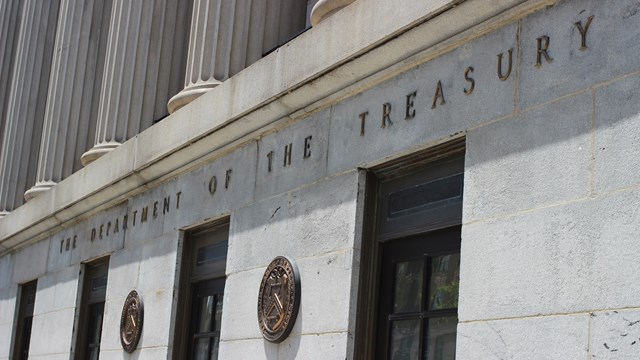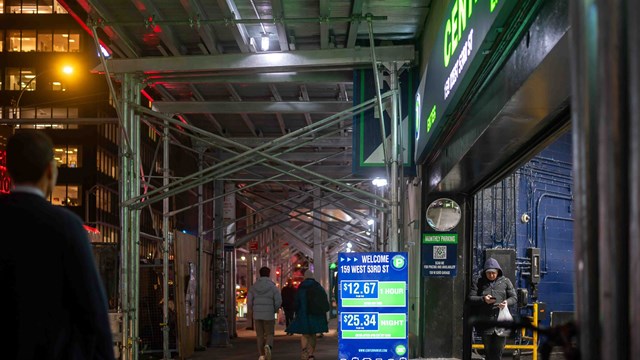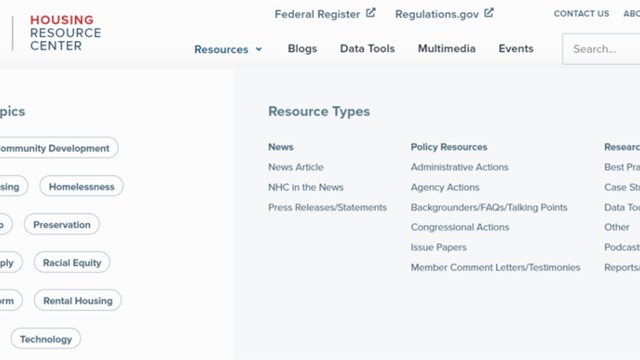
This past June, the New York State Legislature and Governor enacted into law a sweeping overhaul of landlord-tenant relations throughout the State; just a few days later, these same powers enacted amendments to those amendments. While relatively few of the 74 pages of densely-written text directly affect cooperatives and condominiums, boards and managers should be aware of the items that do affect – or appear to affect – their communities.
Many of the enacted provisions will be enforced through the State’s Division of Housing and Community Renewal. In the world of cooperatives and condominiums however, enforcement is nearly entirely through the courts, depending on litigants citing these laws, either in prosecuting their suits or defending them. The one exception to that general rule are the new rules on conversion to cooperative and condominium communities from conventional landlord-tenant housing; any such issues would fall under the auspices of the Attorney General's office.
Processing Fees, Security Deposits, and Background Checks
Processing fees for those applying to purchase a cooperative apartment can be quite high; however they now seem to be restricted by the new law. Newly-enacted RPL 238-a restricts the fees to “reimburse costs associated with conducting a background check and credit check, provided the cumulative fee or fees for such checks is no more than the actual cost of the background check and credit check or twenty dollars, whichever is less.” Of course, in the real world, these expenses normally run into hundreds of dollars.
Changes to the law regarding security deposits (See GOL 7-108(1-a)) limit
cooperative boards to charging no more than one month of prepaid maintenance and another month’s maintenance as a security deposit. Some commentators (with whom this author disagrees) are even interpreting the new laws to mean that the second of these charges may only be collected as the prospective shareholder is actually taking possession.
Prior to this change, in the case of an applicant whose financials were shaky – but for whom the board was willing to accept some limited risk based on an otherwise strong application package – a board could opt to hold multiple months of maintenance for the life of that applicant's residency, or for a long enough period of time that the board was satisfied that the accepted applicant could uphold their financial obligation to the cooperative.
In lieu of the now-banned practice of requiring multiple months of maintenance to guarantee that an applicant can, in fact, pull their weight, we can recommend some possible workarounds.
Possible Solution 1: The Guarantor
Instead of requiring additional maintenance, boards can ask for a financially qualified guarantor to sign the proper documents after the board has conducted proper due diligence in investigating that proposed guarantor. We note, however, that no matter how financially stable they may be, it may prove difficult to collect from any guarantor who is not New York-based.
Possible Solution 2: Attorney Escrow
Another way to hold the extra maintenance in a secure place without violating the new laws is by arranging for the purchaser’s attorneys to hold substantial additional maintenance in their escrow accounts. The funds held thusly would not be released to the shareholder or the board except upon certain specified conditions.
Possible Solution 3: The Bylaws
The bylaws of most co-ops needed to be updated and tightened up even before the new laws went into effect – but these recent changes have made the situation even more urgent. Co-op boards should review and rewrite their bylaws immediately, giving the board the authority to issue fines – but not as rent, or additional rent. The board will simply have to use alternative means to enforce their entitlement to
these additional funds, some of them very long-term. No one thinks that it is easy to amend bylaws and proprietary leases, but under these new laws, the very survivability of some cooperatives and condominiums may depend on those amendments.
Since the new laws limit the charges to incoming shareholders, the board must impose these fees on outgoing shareholders – so new bylaws also need to include either a flip tax or transfer fee. Because sellers and purchasers can reallocate these fees amongst themselves by contract, none of these charges would violate the new law. With properly written corporate documents, such a transfer fee or flip tax can
legally take the place of the extra maintenance, legal fees and processing fees that boards have previously collected upon application or upon closing – and they would provide the funds needed to cover the expenses that have been part of running a cooperative ever since the first NYC co-op opened its doors.
Background Checks and Shareholder Histories
The Department of State has recently opined that the $20 cap on background checks does not apply to cooperative and condominiums -- but as we learned in Roberts v. Tishman Speyer Props., L.P., 13 NY3d 270 (2009), New York’s highest court, the Court of Appeals, has proclaimed that agency decisions can be overruled, no matter how many people have relied on the agency’s determination. So, while the Department of State’s opinion that the $20 cap does not apply to co-ops and condominiums is encouraging, it is not necessarily the last word on how to interpret the June 14 laws.
Scariest of all is that boards can no longer refuse applicants based on the applicant being previously sued in housing court. (See RPL 227-f). This of course exposes boards and their constituent communities to the risk of allowing chronic deadbeat rent- and maintenance-dodgers – and the financial risk that comes with them – into their buildings.
Possible Solution: The Real Estate Broker
Although the new law bans landlords, cooperatives, and those acting on their behalf from charging above $20 for the cost of background checks, nothing in the law explicitly bans real estate brokers from doing so. Commentators are in disagreement as to whether these bans on higher fees apply to brokers, although most agree that the bans apply to managing agents as strongly as to the boards themselves. So, although it is neither certain that the $20 dollar limit is applicable nor that brokers would also be subject to the limitation, boards may find it worthwhile to have the brokers be the ones to collect the higher than $20 fees.
Maintenance Increases, Late Fees, Collections & Receipts
According to the new laws, shareholders must be given between 30 and 90 days notice if their board intends to raise maintenance by more than five percent,, based on a resident's length of occupancy. (See RPL 226-c). Since a large percentage of co-ops have at least one long-term resident, and no resident is going to cheerfully accept getting less notice than anyone else about a fee increase, in most cases this change will mean giving everyone in the co-op 90 days notice. The new law does not directly address special assessments, but a conservative reading would imply that they would also require the same 90-day notices.
The new laws also tighten the requirements for monies paid by wire or any other form besides personal check, now requiring immediate issuance of receipts, and that records of cash payments be kept by or on behalf of the board at their offices for three years. Indirect payments, such as by lockbox, now require a receipt to be issued to the payee within 15 days. (See RPL 227-e)
In addition to all that, late payments can only be charged five percent of monthly maintenance, or $50 – whichever is less. The new laws have also added a provision requiring that prior to serving a rent demand, notice that rent was at least five days late must be sent by certified mail.
Collections and Non-Monetary Holdover Evictions
Under the new laws, the courts now have the discretion and ability to grant a non-paying resident up to a year of continued residence in the apartment before the marshal is permitted to come to the door to perform the eviction. With the Legislature slowing down judicial proceedings, collecting past-due maintenance from shareholders in arrears will likely be an even greater nightmare as unpaid fees pile up and boards struggle to find ways to make up for the loss of incoming maintenance.
The new laws also expand the group of shareholders who previously had 10 days to cure their non-monetary defaults after judgment from just residents of New York City proper to include shareholders throughout New York State, and gives them 30 days to cure. (RPAPL 753). 'Non-monetary defaults' include nuisance behaviors like renting out units as hotel rooms, or using them as venues for all-night rock concerts. Having to put up with obnoxious, disruptive behavior for 10 days is bad enough – having to endure it for a solid month makes a bad situation significantly worse. Worse still, while boards could previously collect attorneys’ fees from these offenders as part of the summary proceedings, now such collections must be by other means – such as in separate lawsuits, or as charges at the closing table when the offending shareholder finally sells the apartment. (RPAPL 702)
Possible Solution: Invoke the Pullman Case
More than ever, co-op boards need to carefully craft their governing documents to allow the board or shareholders to evict a bad actor for conduct not conducive to cooperative living. These so-called 'Pullman cases' (named for a notoriously uncooperative cooperator in the late 1990s) require cooperatives to follow specific protocol: the board must confront the shareholder with their history of misconduct and give them the opportunity to amend the behavior. If the shareholder fails to make such amendments, the board may bring suit to evict them. Thus framed, these suits take away any further cure periods, and the courts do not second-guess the boards, so long as they follow their own rules correctly. However, the courts may still allow the shareholder an additional year of residence prior to eviction, even if subject to some kind of stipulations.
Condo Conversions and the New Law’s Applicability
First, it should be emphasized that none of these new laws apply to condominiums in their direct relationships with unit owners; they only come into play in condos when individual unit owners rent out their units to subtenants. Just because the effects are indirect doesn't make them less real, however. For example, the lengthened cure period on non-monetary defaults mentioned above can have a dramatic impact on other unit owners, and leaves boards powerless to do anything about it. After all, no court will sustain a fine against a unit owner who has done everything the law allows to curb the misbehavior of his or her tenant.
Second, as a result of the new law, building conversions from rental to condo now require 51 percent of the tenants in a converting rental building to buy their units. While effectively preventing the warehousing of empty units, this law makes it economically unfeasible for nearly any building to convert – except situations in which the other restrictions of the new law make private ownership of a building so untenable that the owner and the tenants negotiate a fire sale type conversion to co-op or condo ownership.
Possible Solution: Rehabilitation, Demolition & New Construction
The new laws do not touch the old doctrines of demolition, substantial rehabilitation, and new construction. Theoretically, any building can be subject to demolition – but the procedure required to effect that through the state agencies remains arduous. In the few months since the law's passage, substantial rehabilitation (which on the practical level means the gut renovation of distressed buildings) has created a heated market in empty or nearly-empty distressed buildings. Where the developer can show a brand-new gut renovation, the building is exempt from any rent regulation at all. Brand-new construction enjoys the same kind of exemption.
In Closing...
Clearly, this article leaves open some questions on whether and how these new laws may (or may not) apply to co-op and condo communities. Various state agencies have promised to release their interpretations, but as the only state agency directly regulating cooperatives and condominiums, the Attorney General will have the most persuasive advice to offer. However, some of these laws were actually designed for rent regulated housing and any advice the state's Division of Housing and Community Renewal may eventually offer could prove persuasive in co-ops and condos as well. Ultimately, the only truly reliable interpretations are going to come from the courts as these laws are applied, tested, and potentially challenged.
Adam Leitman Bailey is a New York City-based attorney specializing in co-op and condo law.









Comments
Leave a Comment